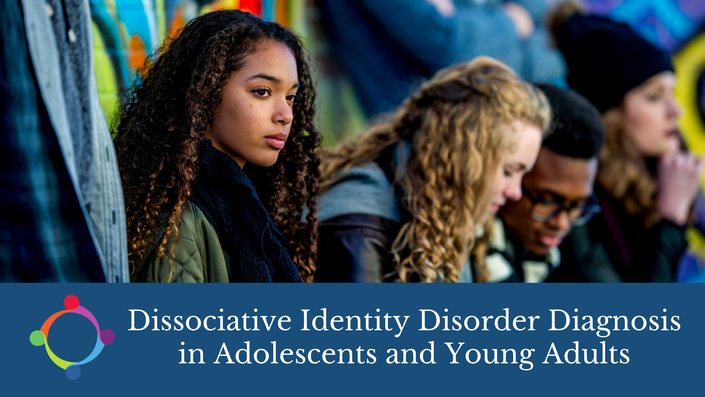About this presentation
Parent Child Interaction Therapy (PCIT) is an evidence-based treatment designed to decrease behavioral problems in young children; however, it also helps to increase positive interactions, pro-social behaviors, self-esteem, and attention span.
This lecture will present an introduction to PCIT and the recent research on its effectiveness as a telehealth intervention. Dr. Gross will also present select behavioral skills from the first phase of PCIT that providers could take away as a tool in their work with children and parents.

What you'll learn
At the conclusion of this presentation, attendees should be able to describe what PCIT is and who it is a fit for. They will also be able to name several benefits of PCIT. Participants will further learn how to find PCIT services and where to look for further training in PCIT.
Learning Objectives:
- List one tool of PCIT and how to apply it
- Describe three cultural considerations for the use of PCIT
- Name and describe the two phases of PCIT
About your teacher
Kalee M. Gross, Psy.D., clinical psychology. Dr. Gross was previously a doctoral student at the University of Indianapolis. Her training has been generalized in presenting problems and ages; however, she received specialized training in working with children and adolescents. She further received training in Parent-Child Interaction Therapy (PCIT) during her postdoctoral fellowship at the Boys Town Behavioral Health Clinic and became a PCIT-certified therapist. She has her sight set on becoming a PCIT within agency trainer. She also specializes in ACT, CBT, and DBT with youth and adults.

CE Approval
UCEBT is approved by the American Psychological Association to sponsor continuing education for psychologists. UCEBT maintains responsibility for this program and its content.
Additionally, this presentation is approved for ethics homestudy CE credit through UPA, NASW-UT, UAMFT, and UMHCA.
Program Notices
This presentation gives an introduction to the evidence-based therapy called Parent Child Interaction Therapy (PCIT).
As with all clinical interventions, attendees should be thoughtful about applying PCIT skills and strategies without appropriate training and supervision.
Additionally, Dr. Kalee Gross is not a PCIT trainer so this material cannot be considered a part of your training toward becoming a PCIT certified therapist.
Conflicts of Interest: None known.
Commercial Support: None.
References
Bodiford McNeil, C., & Hembree-Kigin, T. L. (2011). Parent-Child Interaction Therapy (Second Edition). Springer Science+Business Media. (Original work published 1995)
Borrego, J. Jr., Anhalt, K., Terao, S. Y., Vargas, E. C., & Urquiza, A. J. (2006) Parent-Child Interaction Therapy with a Spanish-speaking family. Cognitive and Behavioral Practice, 13(2), 121-133.
Borrego, J. Jr., Ibanez, E. S., Spendlove, S. J., Pemberton, J. R. (2007). Treatment acceptability among Mexican American parents. Behavior Therapy, 38, 218-227.
Comer, J. S., Furr, J. M., Cooper-Vince, C., Madigan, R. J., Chow, C., Chan, P. T., Idrobo, F., Chase, R. M., McNeil, C. B., & Eyberg, S. M. (2015). Rationale and considerations for the internet-based delivery of Parent-Child Interaction Therapy. Cognitive & Behavioral Practice, 22, 302-316.
Fleming, G. E., Kohlhoff, J., Morgan, S., Turnell, A., Maiuolo, M, & Kimonis, E. R. (2021). An effectiveness open trial of internet delivered parent training for young children with conduct problems living in regional and rural Australia. Behavior Therapy, 52(1), 110-123. doi: 10.1016/j.beth.2020.03.001.
Garcia, D., Blizzard, A. M., Peskin, A., Rothenberg, W. A., Schmidt, E., Piscitello, J., Espinosa, N., Salem, H., Rodriguez, G. M., Sherman, J. A., Parlade, M. V., Landa, A. L., Davis, E. M., Weinstein, A., Garcia, A., Perez, C., Rivera, J. M., Martinez, C., & Jent, J. F. (2021). Rapid, full-scale change to virtual PCIT during the COVID-19 pandemic: Implementation and clinical implications. Prevention Science, 22(3), 269-283.
Lieneman, C. C., Brabson, L. A., Highlander, A., Wallace, N. M., & McNeil, C. B. (2017). Parent–Child Interaction Therapy: Current perspectives. Psychology Research and Behavior Management, 10.
McCabe, K. & Yeh, M. (2009). Parent-child interaction therapy for Mexican Americans: a randomized clinical trial. Journal of Clinical Child and Adolescent Psychology, 38(5):753-9.
PCIT International. (2015-2018). Retrieved from http://www.pcit.org/
Valero-Aguayo, L., Rodríquez-Bocanegra, M., Ferro-García, R., & Ascanio-Velasco, L. (2021). Meta-analysis of the efficacy and effectiveness of
Parent Child Interaction Therapy (PCIT) for child behaviour problems. Psicothema, 33(4), 544-555. doi: 10.7334/psicothema2021.70.



